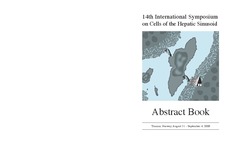Genetic polymorphisms of the GNRH1 and GNRHR genes and risk of breast cancer in the National Cancer Institute Breast and Prostate Cancer Cohort Consortium (BPC3)
| dc.contributor.author | Lund, Eiliv | |
| dc.contributor.author | Canzian, Federico | |
| dc.contributor.author | Kaaks, Rudolf | |
| dc.contributor.author | Cox, David G. | |
| dc.contributor.author | Henderson, Katherine D. | |
| dc.contributor.author | Henderson, Brian E. | |
| dc.contributor.author | Berg, Christine | |
| dc.contributor.author | Bingham, Sheila | |
| dc.contributor.author | Boeing, Heiner | |
| dc.contributor.author | Buring, Julie | |
| dc.contributor.author | Calle, Eugenia E. | |
| dc.contributor.author | Chanock, Stephen | |
| dc.contributor.author | Clavel-Chapelon, Francoise | |
| dc.contributor.author | Dossus, Laure | |
| dc.contributor.author | Feigelson, Heather Spencer | |
| dc.contributor.author | Haiman, Christopher A. | |
| dc.contributor.author | Hankinson, Susan E. | |
| dc.contributor.author | Hoover, Robert | |
| dc.contributor.author | Hunter, David J. | |
| dc.contributor.author | Isaacs, Claudine | |
| dc.contributor.author | Lenner, Per | |
| dc.contributor.author | Overvad, Kim | |
| dc.contributor.author | Palli, Domenico | |
| dc.contributor.author | Pearce, Celeste Leigh | |
| dc.contributor.author | Quiros, Jose R. | |
| dc.contributor.author | Riboli, Elio | |
| dc.contributor.author | Stram, Daniel O. | |
| dc.contributor.author | Thomas, Gilles | |
| dc.contributor.author | Thun, Michael J. | |
| dc.contributor.author | Trichopoulos, Dimitrios | |
| dc.contributor.author | van Gils, Carla H. | |
| dc.contributor.author | Ziegler, Regina G. | |
| dc.date.accessioned | 2009-10-19T12:22:16Z | |
| dc.date.available | 2009-10-19T12:22:16Z | |
| dc.date.issued | 2009-07-29 | |
| dc.description.abstract | Background: Gonadotropin releasing hormone (GNRH1) triggers the release of follicle stimulating hormone and luteinizing hormone from the pituitary. Genetic variants in the gene encoding GNRH1 or its receptor may influence breast cancer risk by modulating production of ovarian steroid hormones. We studied the association between breast cancer risk and polymorphisms in genes that code for GNRH1 and its receptor (GNRHR) in the large National Cancer Institute Breast and Prostate Cancer Cohort Consortium (NCI-BPC3). <br> Methods: We sequenced exons of <i>GNRH1</i> and <i>GNRHR</i> in 95 invasive breast cancer cases. Resulting single nucleotide polymorphisms (SNPs) were genotyped and used to identify haplotypetagging SNPs (htSNPS) in a panel of 349 healthy women. The htSNPs were genotyped in 5,603 invasive breast cancer cases and 7,480 controls from the Cancer Prevention Study-II (CPS-II), European Prospective Investigation on Cancer and Nutrition (EPIC), Multiethnic Cohort (MEC), Nurses' Health Study (NHS), and Women's Health Study (WHS). Circulating levels of sex steroids (androstenedione, estradiol, estrone and testosterone) were also measured in 4713 study subjects. <br> Results: Breast cancer risk was not associated with any polymorphism or haplotype in the <i>GNRH1</i> and <i>GNRHR</i> genes, nor were there any statistically significant interactions with known breast cancer risk factors. Polymorphisms in these two genes were not strongly associated with circulating hormone levels. <br> Conclusion: Common variants of the <i>GNRH1</i> and <i>GNRHR</i> genes are not associated with risk of invasive breast cancer in Caucasians. | en |
| dc.format.extent | 986856 bytes | |
| dc.format.mimetype | application/pdf | |
| dc.identifier.citation | BMC Cancer 2009, 9:257 | en |
| dc.identifier.uri | https://hdl.handle.net/10037/2188 | |
| dc.identifier.urn | URN:NBN:no-uit_munin_1940 | |
| dc.language.iso | eng | en |
| dc.publisher | BioMed Central | en |
| dc.rights.accessRights | openAccess | |
| dc.subject | VDP::Medical disciplines: 700::Clinical medical disciplines: 750::Oncology: 762 | en |
| dc.subject | VDP::Medisinske fag: 700::Basale medisinske, odontologiske og veterinærmedisinske fag: 710::Medisinsk genetikk: 714 | |
| dc.subject | VDP::Medical disciplines: 700::Basic medical, dental and veterinary science disciplines: 710::Medical genetics: 714 | |
| dc.title | Genetic polymorphisms of the GNRH1 and GNRHR genes and risk of breast cancer in the National Cancer Institute Breast and Prostate Cancer Cohort Consortium (BPC3) | en |
| dc.type | Journal article | en |
| dc.type | Tidsskriftartikkel | en |
| dc.type | Peer reviewed | en |


 English
English norsk
norsk


